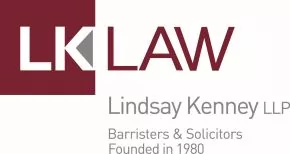- within Finance and Banking topic(s)
- with Senior Company Executives, HR and Finance and Tax Executives
- with readers working within the Accounting & Consultancy, Banking & Credit and Healthcare industries
The idea that what you and your lawyer discuss in private, should remain private, is at the core of our legal system. However, that is not always the case when it comes to certain aspects of estate litigation. One such exception is in estate administration, where beneficiaries are entitled to estate accounting from the executor or administrator. When estate administration turns contentious and develops into estate litigation, the issue of privilege can become a topic of dispute.
In the recent Supreme Court of British Columbia decision Barbieri Estate v. White, 2023 BCSC 1176, the Court considered if records of payments made from an estate for legal fees are privileged. The basics of the case were:
- The Deceased was survived by three adult children.
- The Deceased's Will, jointly appointed the Deceased's daughter and one of her son's to be executors.
- Shortly after probate was granted, the son became the sole executor of the estate. While the Deceased's third child was not appointed as an executor, the Deceased's Will divided the estate equally between all three children.
- During his role as the sole executor, the Deceased's son agreed to account to the beneficiaries on a bi-monthly basis.
- Administration of the estate became contentious and quickly escalated to litigation.
When the executor agreed to bi-monthly accounting, he also signed a Consent Order agreeing to this. However, the Consent Order did not specify what documents should be provided, nor did it make an exception for records of legal fees paid from the estate. When a lawyer provides their legal bill, it will often include detailed entries as to what was done, and when, including confidential communications such as "communications with client regarding the dispute and...."
In Barbieri, the executor brought an application asking the Court to declare the Disputed Documents as privileged and confidential, preventing the beneficiaries from having a chance to review them. The central issue of this application was determining what is included in accounting to beneficiaries, what degree of disclosure is required and the extent of the protection client-solicitor privilege provides.
In the end, the court held and stated the following principles:
- The executor only waived privilege with respect to records of legal fees paid out of the estate. The Court explicitly stated that the executor did not waive privilege with respect to the legal advice he received;
- BUT the argument that the Consent Order is insufficient to "abrogate privilege over all estate accounting documents" is disingenuous, and was viewed as an after-the-fact attempt to resile from the express agreement he made to provide the Estate Accounting to his siblings, in return for becoming the sole Executor of the Estate.
The key takeaway is that when acting as the Executor, you must be aware of this risk, where your legal bills (and any communications written in the description) with your lawyer, regarding the administration of the Estate may be shared with the other side. It is important that you and your lawyer are aware of this.
About Mackrell International – Canada - Lindsay Kenney LLP is a full service business law firm with offices in Vancouver and Langley, BC and a member of Mackrell International. Mackrell International – Canada is comprised of four independent law firms in Alberta, British Columbia, Ontario and Quebec. Each firm is regionally based and well-connected in our communities, an advantage shared with our clients. With close relations amongst our Canadian member firms, we are committed to working with clients who have legal needs in multiple jurisdictions within Canada.
This article is intended to be an overview and is for informational purposes only.


